A year has passed since my visit to the Chernihiv region, where I had spent half of my life. This was just after the Russian occupiers had left. In the last few days, I have been looking at photos and videos of that visit and realize that the pain I felt then and the scars on my heart are still with me.
The region of Chernihiv, also known as Sivershchyna, is unbreakable and unconquered. The village of Ivanivka, 10 km from the center of Chernihiv, is my small hometown. My relatives on both sides of my parents are from there. I spent a lot of time there in my youth and especially liked visiting my great-grandmother, Masha. Her gravestone was destroyed by a Russian shell, during the occupation.
JOIN US ON TELEGRAM
Follow our coverage of the war on the @Kyivpost_official.
My relatives, including my father’s mother and my mother's aunt and her husband, lived under Russian occupation from March 5 to 30, 2022. I always thought my great-aunt was too young to be a grandmother. She is now in her seventies but I still call her Aunt Shura and her husband Uncle Misha as I did in childhood.
My relatives' chronicles of living under occupation
On May 7 last year, I went from Chernihiv to Ivanivka, a journey that used to take half an hour, but not that day. On the night of March 23, 2022, a Russian aircraft bombed the road bridge over the Desna River near Chernihiv. So, in order to get to Ivanivka, I had to get on a minibus behind the pedestrian bridge and drive along a long detour (which at times turned into an off-road). As I approached the bridge, a place I knew as a child and where I loved to walk with my friends, I started to get mad. Russian shelling had damaged the bridge, there were holes in it and there were many fallen trees around.

UK to Speed Up Military Purchases Amid Ukraine Fallout
When I went down to the bus terminus, I saw several burned-out cars. A Ukrainian soldier approached me, asked where I needed to go, and offered to drive me. However, my bus was about to leave, so I sincerely thanked him and set off.
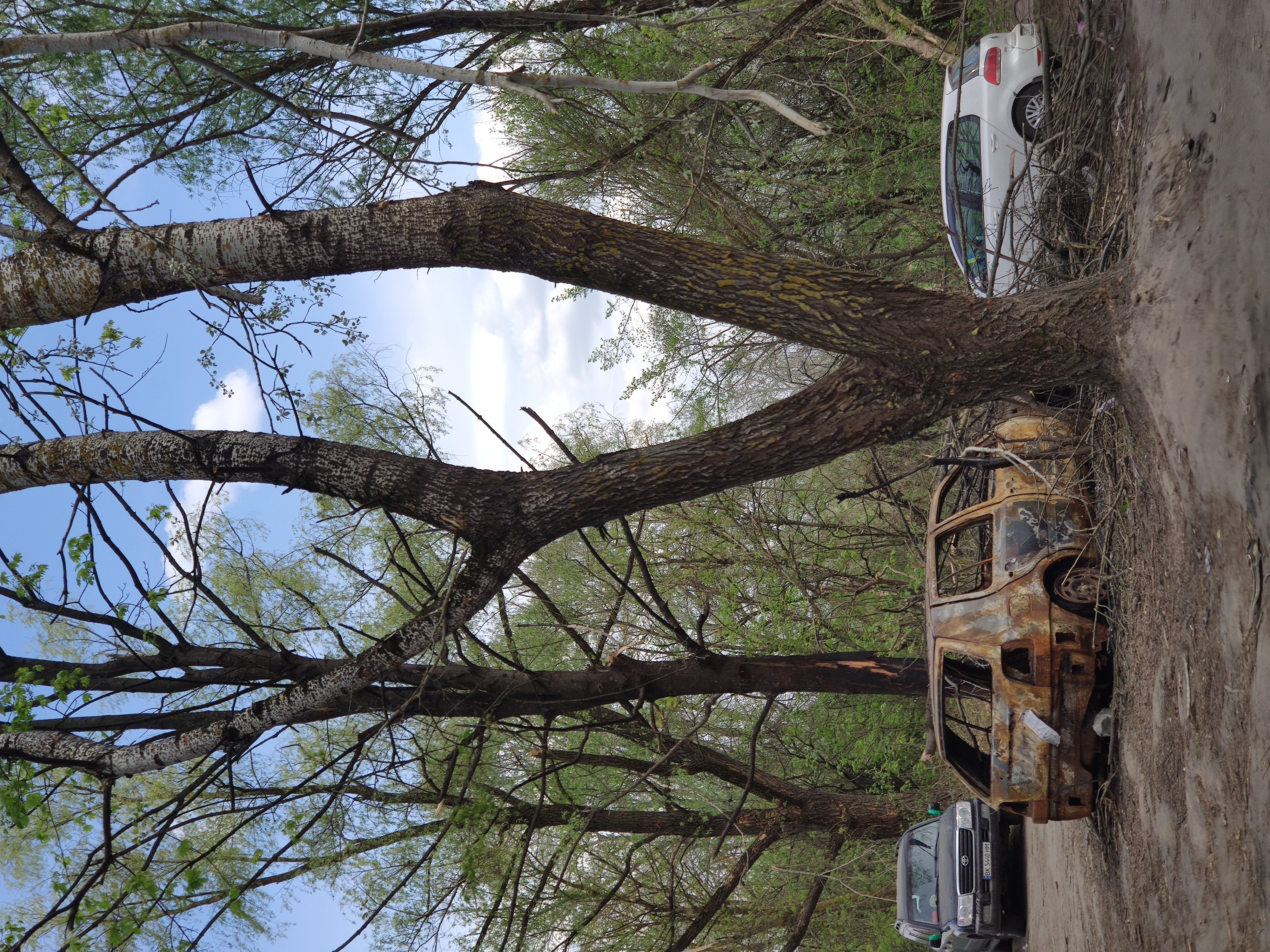
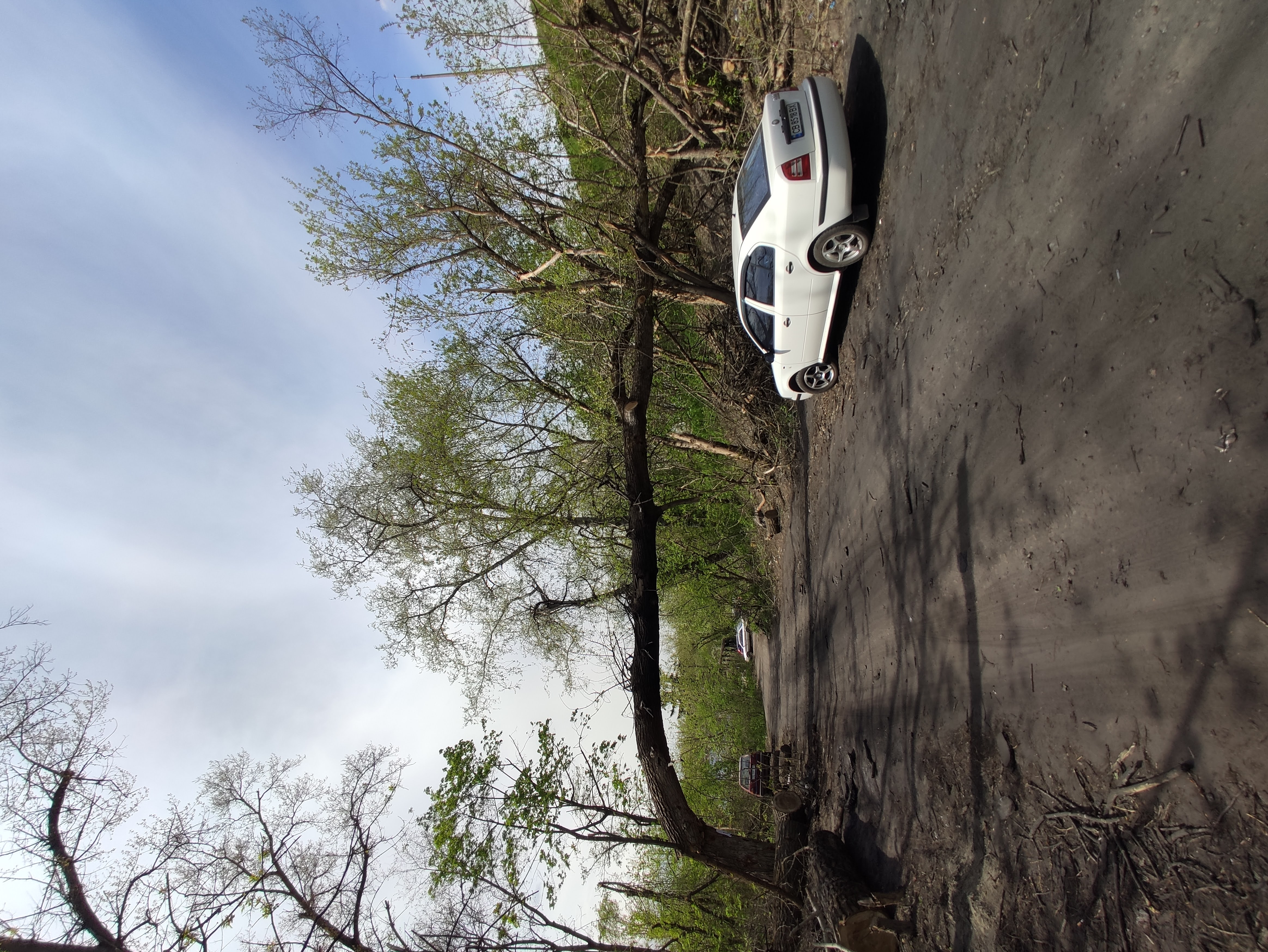
Under the damaged pedestrian bridge in Chernihiv/Julia Struck
When I got off the bus in Ivanivka, the first thing I saw was battered Russian military vehicles and uniforms of the occupiers. On the way to Aunt Shura and Uncle Misha's house, I looked more places I knew well, it was painful. Houses, the cultural center, the village council building, the store, the school were all damaged by shelling, marked with "Z" and fences were cut by debris.
I was not far from my relatives' house when Aunt Shura, as always, came out to meet me at the gate. I ran to her as fast as I could, hugged her tightly and started sobbing loudly.
"How did you survive all this, my God, how?" the first thing I asked her.
"We survived somehow," my aunt answered with tears in her eyes. Later Uncle Misha told me about the horrors of the occupation.
My uncle told me about a conversation with a Russian soldier:
The Russian soldier: It this an elite settlement?
Uncle Misha: What makes you say that?
The Russian soldier: Well, you have asphalt here, the Internet...
The Russian soldiers stationed in the village were from Yekaterinburg, Perm and Tuva, none from the central regions. The occupants came twice to my relatives' house. On the first time, they looked under the beds, and in the wardrobes, in case Ukrainian soldiers were hiding in the house. The second time they asked for weapons and mobile phones. Uncle Misha said that they shared one phone (he had hidden his own so he could keep in touch with their children). He gave them his wife's phone but they didn’t take it, just removed the SIM card.
My relatives told me how lucky they had been. "Lucky" during the occupation meant that, while two tanks and three Russian armored personnel carriers stood in their garden, at least they had not been evicted from their home. The Russians had ejected a family from the neighboring house moved in. Later, these occupiers shot another neighbor, took his body to his own house and burnt it down. The Russians often broke into empty houses.
They ate not only their field rations, but stole vegetables and butchered pigs from the locals. They took motorcycles and quad bikes from residents and drove them around the village for fun...
My relatives, like most of the residents of Ivanivka, hardly ever dared to walk around the village. Daily shelling and damage to pavements from Russian vehicles made it impossible. They used to go to each other through the gardens, until the Russians deployed military vehicles there.
On March 22, the Russians hung an announcement on the gates of the locals:
"For your safety, leaving the house and shelters is allowed from 8:00 a.m. to 10:00 a.m. It is forbidden to gather for more than three persons, to tear this announcement off ... Failure to meet these requirements will be regarded as an act of aggression."
Uncle Misha showed me this ad. While I was taking pictures, he was shaking with outrage, "It will be regarded as an act of aggression, do you understand? They tell us about aggression!"
I was in despair from what I read, and then this phrase caught my eye: "We apologize for the temporary inconvenience."
These subhuman Russians were so "polite."
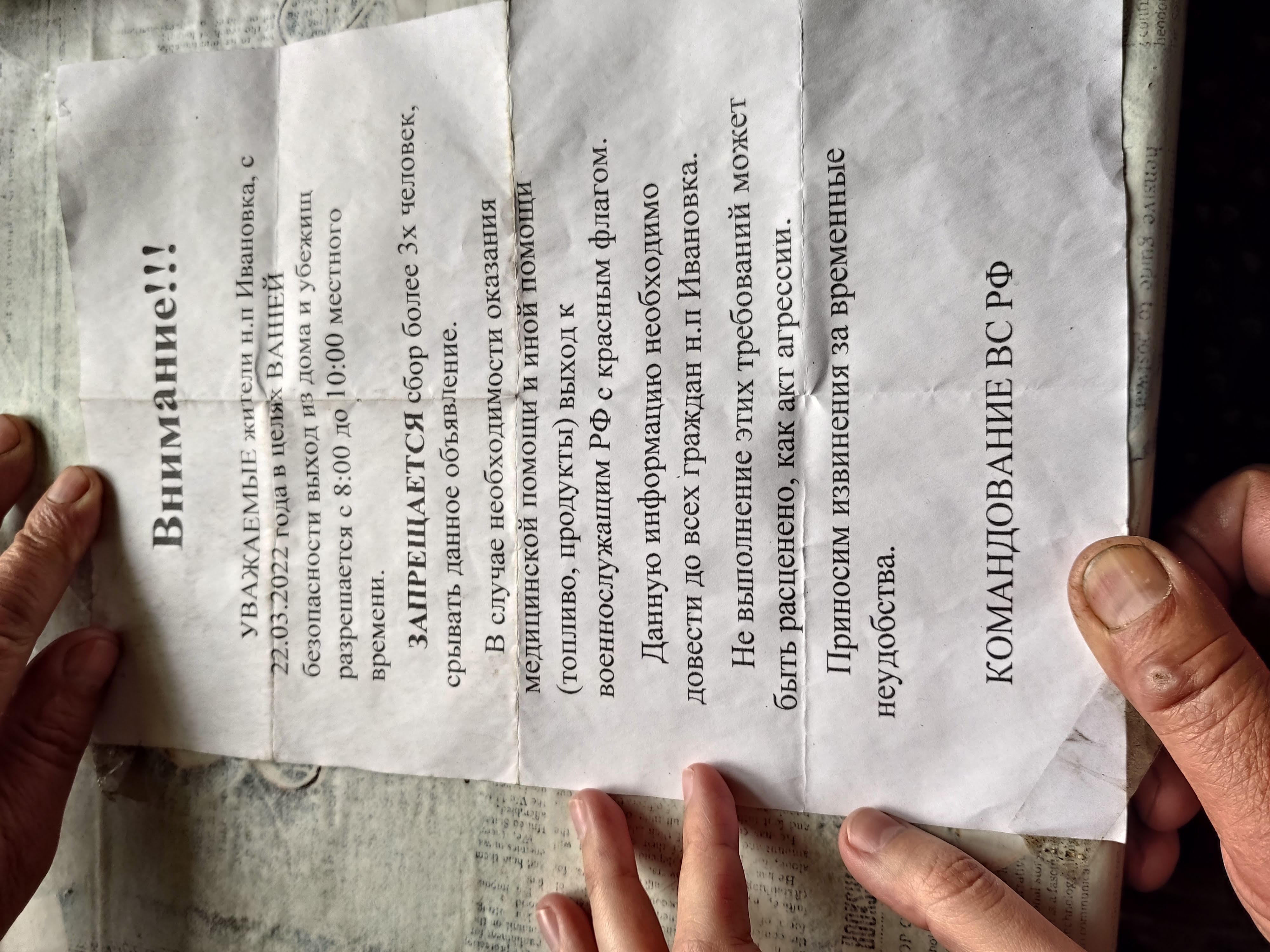
The advertisement of the Russians/Julia Struck
Then Uncle Misha gave me a "tour." First, we went into the garden. He showed me the traces of Russian military equipment - they were almost gone by then, but a little was visible. The occupiers' trenches had been filled with earth. The neighbors, whom the Russians evicted from their own home, were working in the yard.
Then we returned to the yard, where my uncle showed me the debris from shelling.
"I didn't collect this fromsomewhere in the village, it's only in our yard! Do you see the smallest one? It's as sharp as a knife, even if someone is injured – that's death, an immediate death. That gray largest one is from the Grad rocket. And this piece is from a bomb."
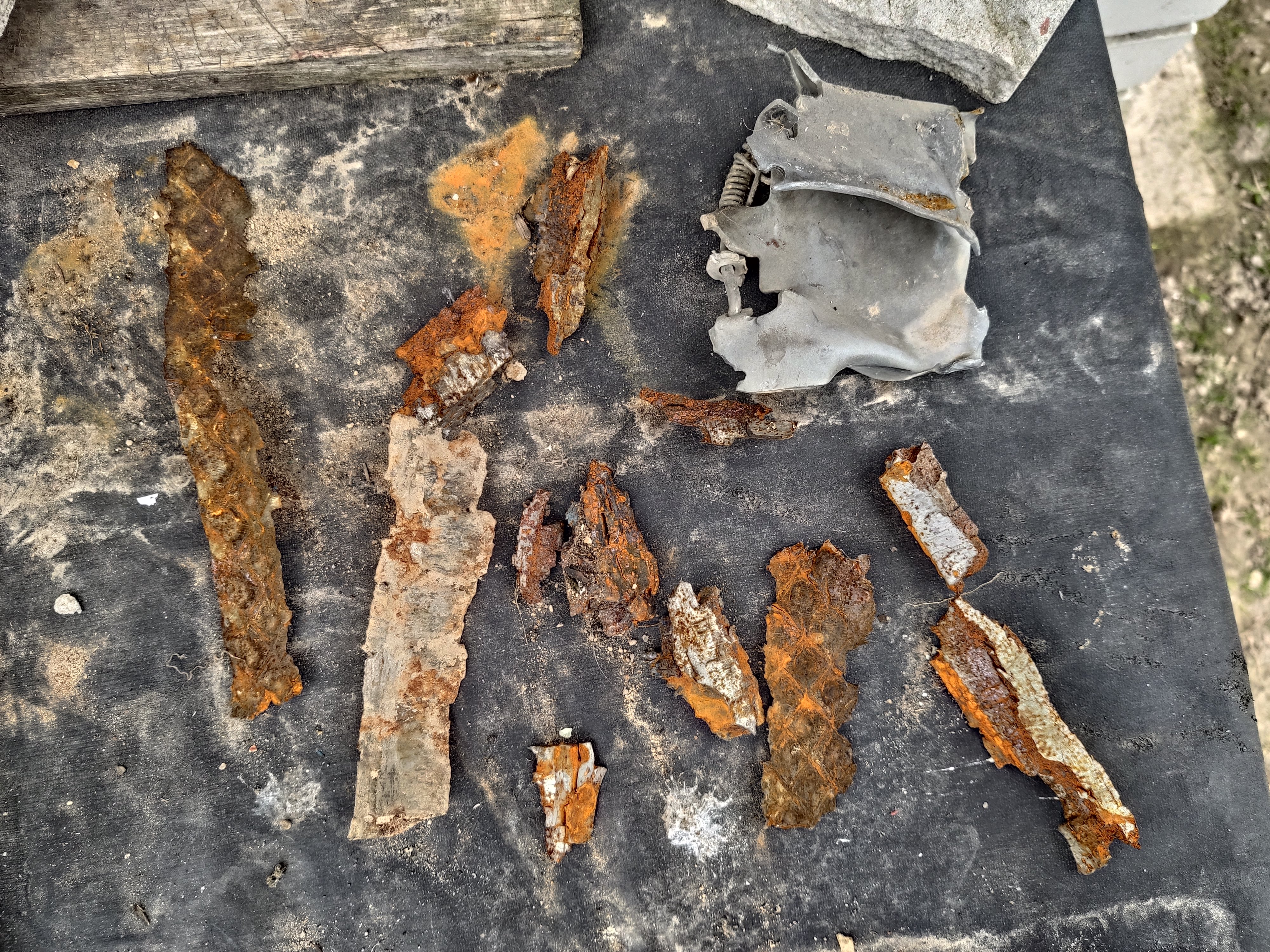
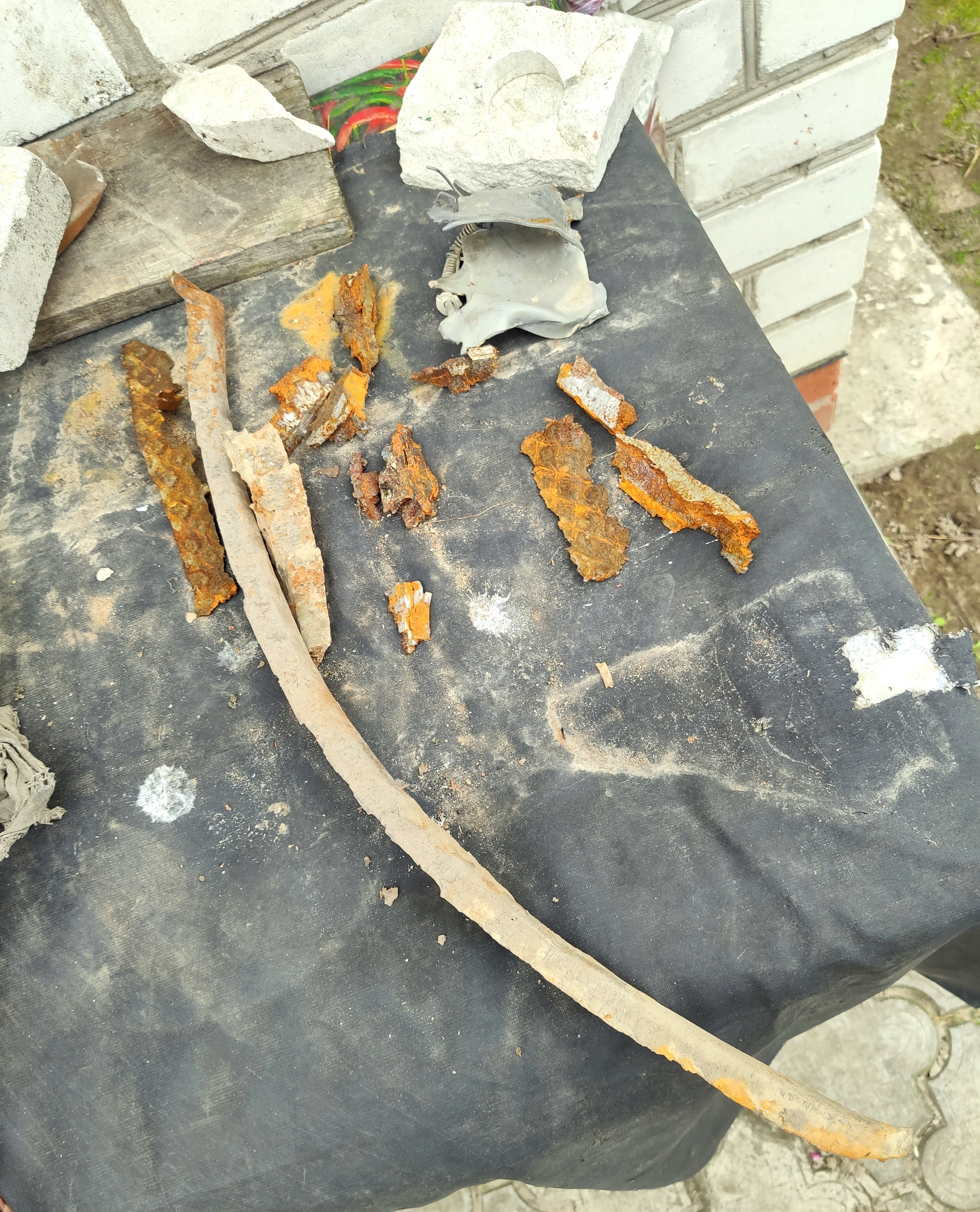
The debris from Russian shelling/Julia Struck
Then we went left the yard and Uncle Misha showed me the place where the Russians gathered - not far from their house.
"The signal is good here. They called their relatives from here and told such delusions. They told them about the Nazis, about "liberation." What a laugh - they put electric kettles on gas stoves! When they were retreating, they loaded everything that could be carried onto their armored personnel carriers. They took badminton rackets from that house (he pointed to a nearby house). What do they need those rackets for?" he said.
The occupiers did not let anyone in or out of the village, Uncle Misha recalled.
"Shura was running out of insulin. If she runs out of it - a diabetic coma and that's all ... I went to their commander, a 46-year-old Dagestani called Abdul. I said I needed to go to the city to take insulin for my wife. He answered, "I will let you out of the village, go, but who knows, if our sniper might shoot you"."
Fortunately, the Russians had left the village before my aunt ran out of insulin. For me, their leaving is one of the greatest miracles in life, one created by the Armed Forces of Ukraine.
Behind the gates, Uncle Misha attentively looked into my eyes and said, "I understand that this year will be difficult, difficult in every way, but primarily in terms of food. Many land plots have not been sown with crops. However, I am ready to eat only potatoes and salted cucumbers if I know they’ll never come again."
We hurried to the house, where aromatic coffee with homemade milk and a sliced cake were waiting for us. Over coffee, my uncle proudly told me that my aunt cooked dinner for our soldiers when they entered the village after the Russians had left. Aunt Shura is a diabetic and suffered a stroke in December 2021. Despite everything, she found the strength to help others.
"I am no longer afraid of their shelling, their missiles, and their bombs. That is not as scary as they are themselves, especially after what they did in Bucha, Irpin, Mariupol, because they are inhuman," Uncle Misha said sadly.
On the way to Chernihiv, I saw with horror what the invaders had done to Kolychivka - a village 8 kilometers from the city. Fierce battles between the Armed Forces of Ukraine and the Russian troops took place there. The Russians wanted to break through Kolychivka to Chernihiv, firing at our defenders from the occupied Ivanivka. However, they failed to occupy Kolychivka.
Video of the destruction in Kolychivka, May 7, 2022/Julia Struck
In search of ATO fighter
My father went to war back in 2014. However, after leaving Debaltseve, Donetsk region, in February 2015, he was demobilized with multiple wounds. Dad was a military pensioner until February 24, 2022. On the first day of the full-scale Russian invasion, he went to the draft board and registered as a volunteer. During 2022-2023, my father served in many hotspots throughout Ukraine.
At the time when Dad was defending the Ukrainian land at the front, his mother was under occupation in Ivanivka. He had no contact with her for almost a month and constantly worried. He called a neighbor from the opposite side of the village and begged her to come and check on grandma. She left, but halfway the Russians turned her away, warning that movement in Ivanivka was prohibited.
Later, after the de-occupation, it turned out that the Russian military had visited grandmother, searching her house looking for my father, they knew he was an ATO (the anti-terrorist operation) fighter. They rummaged through her house, stole Dad's personal belongings - certificates from Kyiv City State Administration and a collection of lighters.
During shelling, the houses of my grandmother and her neighbor were damaged, the windows were blown out and the roofs badly damaged.
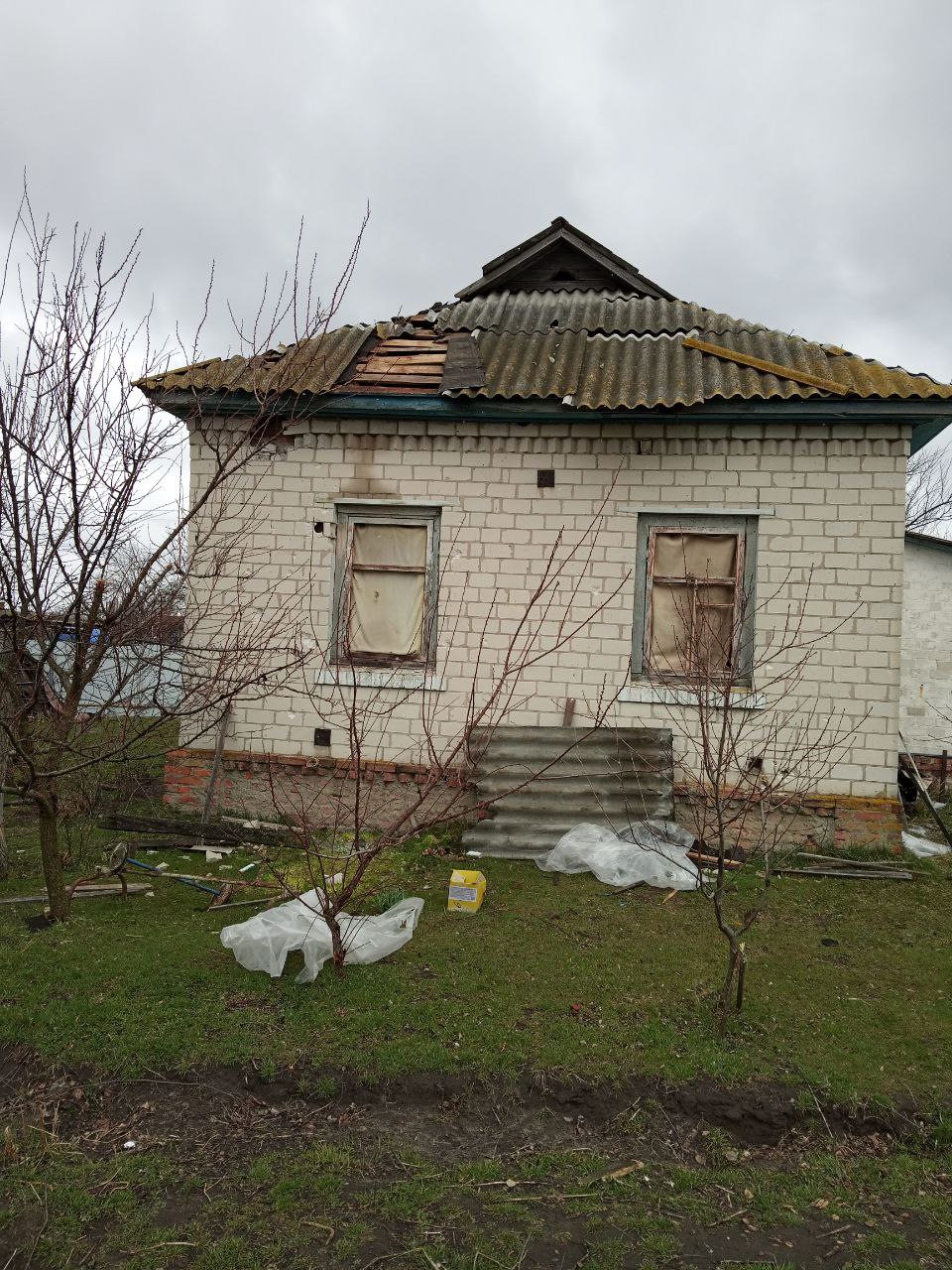
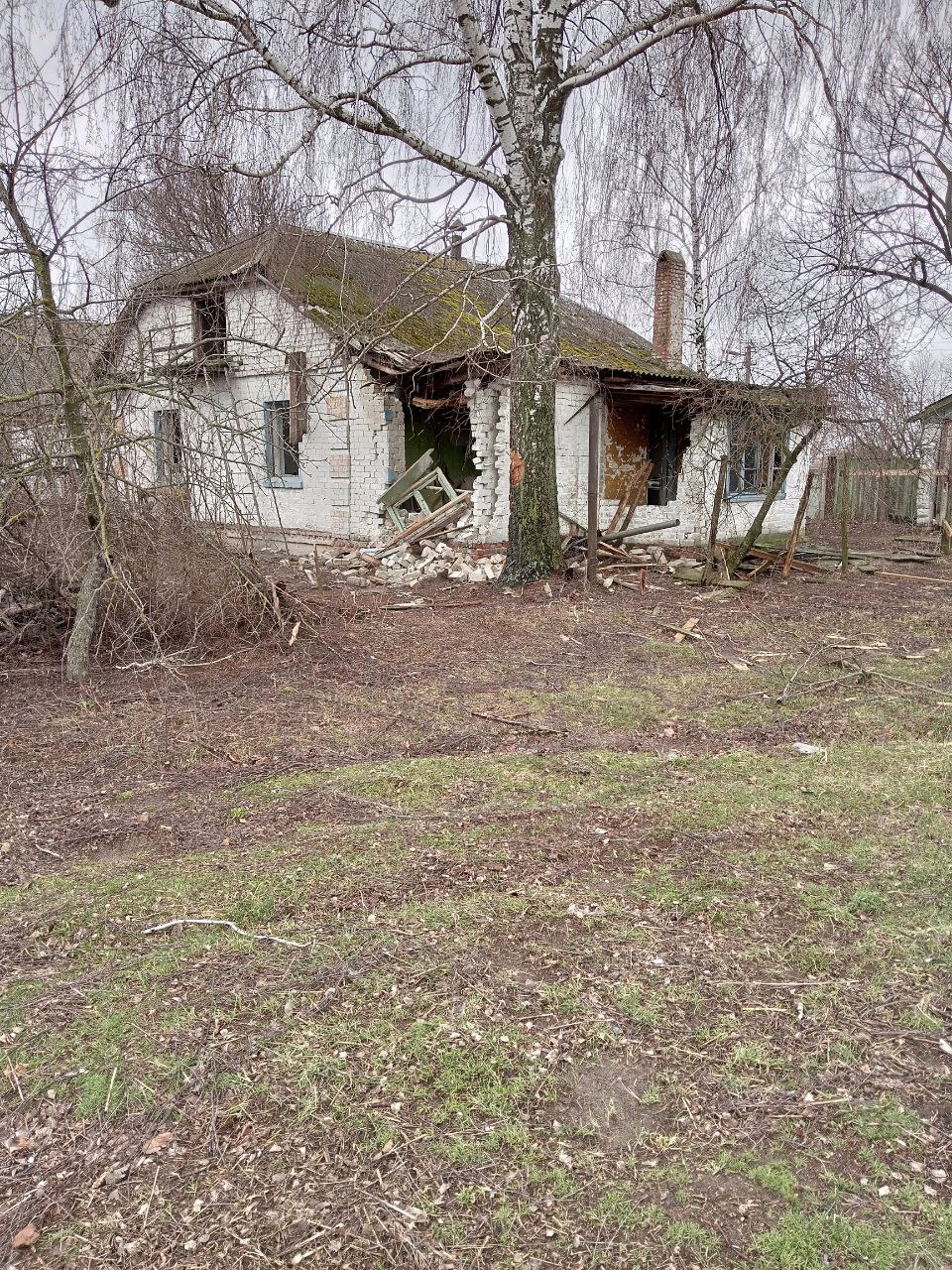
The damaged houses of my grandmother and her neighbor, provided by my father
Chernihiv is a city of heroes
For three days, I wandered around my native Chernihiv – the indomitable heart of Sivershchyna, which resisted and stopped the advance of the Russians to the heart of Ukraine - Kyiv. What was Chernihiv like then?
Scarcely populated. "The war taught us to defend ourselves," "What are Pushkin and Lermontov guilty of?" these fragments of other people's conversations, which I caught with half an ear, still – a year later - stick in my mind. Peoples’ moods varied: some were depressed, some were smiling and some were wary. I looked at everyone like beaten dogs and in my mind hugged them, my native fellow citizens.
Flowering: I don't remember when Chernihiv was so flowering, even a few magnolia trees were blooming. The picture that is firmly etched in my memory is the destroyed Hotel Ukraine and flowerbeds with red and yellow tulips close by.
Clean: While many facilities in the city were destroyed, glass, debris and garbage had all been removed. Public transport was not working but, on my way to my grandfather, I passed by a bus stop that was being washed by two municipal workers. Just think - the transport did not run, but the bus stop was cleaned, because residents rested there. Since neither trolley-buses nor ordinary buses ran, many residents of Chernihiv switched to bicycles. Back then, Chernihiv was not only a city of flowers and churches, but also of cyclists.
Electricity, gas, water, good mobile communication and the Internet – was all working already. The water was mostly cold, so residents installed boilers. At the beginning of March 2022, Chernihiv was without heating, because the Russians had destroyed the thermal power plant, so it was quite cold in most houses. Not in my grandfather's apartment, though. He had a bunch of heaters that made it as hot as a desert.
Most cafes and restaurants were not working a year ago. However, small coffee shops had sprung up so you could get a takeaway drink and sit inside somewhere.
It was in Chernihiv that I saw empty shelves in shops and supermarkets, many empty shelves. At that time, there was no question of any variety of assortment.
Chernihiv residents said, "We had to stand in line to buy bread for hours, but now we cannot complain!"
My grandfather's neighbor, Aunt Valya, explained, "We were standing in line, and suddenly there was bang-bang-bang – they were shooting everywhere. But everyone stayed, we could not leave because we had been standing in line for so long. We huddled near the walls of the store, as if they could protect us."
At that time, the air-raid siren in the city was not working. It had been turned off almost at the very beginning of the full-scale war, due to power outages. At first, Chernihiv residents got notifications by phone. When electricity, communication and the Internet in Chernihiv almost disappeared, people started setting alarms. My favorite school teacher, Tetiana Yevhenivna, told me that the hours were roughly calculated when the Russians started shelling and airstrikes, so people set alarms for this time and then tried to hide.
Of course, I cannot speak for all citizens. However, I want to tell you about my loved ones. They appreciate everything and rejoice in everything. They are grateful to the Armed Forces of Ukraine, because the enemy planes that dropped large bombs on Chernihiv are no longer flying over their heads; now they do not hear Grad missiles, self-propelled guns and the roar of fighter jets. Now there is water, electricity, you can pay with a card in a store and withdraw cash from an ATM, you can freely buy groceries and no longer have to collect water from the Desna River.
These photos show how my native Chernihiv met me a year ago – on my way from the city center to the Bobrovytsi district. Here you can see the destroyed Hotel Ukraine, the building of the Chernihiv Regional Youth Center, the burned-out building of the SBU (the State Security Service) office, the Chernihiv Regional Youth Library, the Yuriy Gagarin Stadium, the Chernihiv Polytechnic National University, the Chernihiv Central Regional Hospital, the Chernihiv district police department, the Desniansky department of the State Executive Service in Chernihiv, the damaged and destroyed buildings near it, a shelled house next to the Berezovy Hay (Birch Grove) park and a burned-out car nearby.
These locations are 10 to 40 minutes' walk from my house. It was especially difficult to look on the mutilated and broken places that I love, that are familiar in every detail from childhood. However, the stories of the things my loved once suffered during the siege and occupation were much more painful.
You can also highlight the text and press Ctrl + Enter

















































